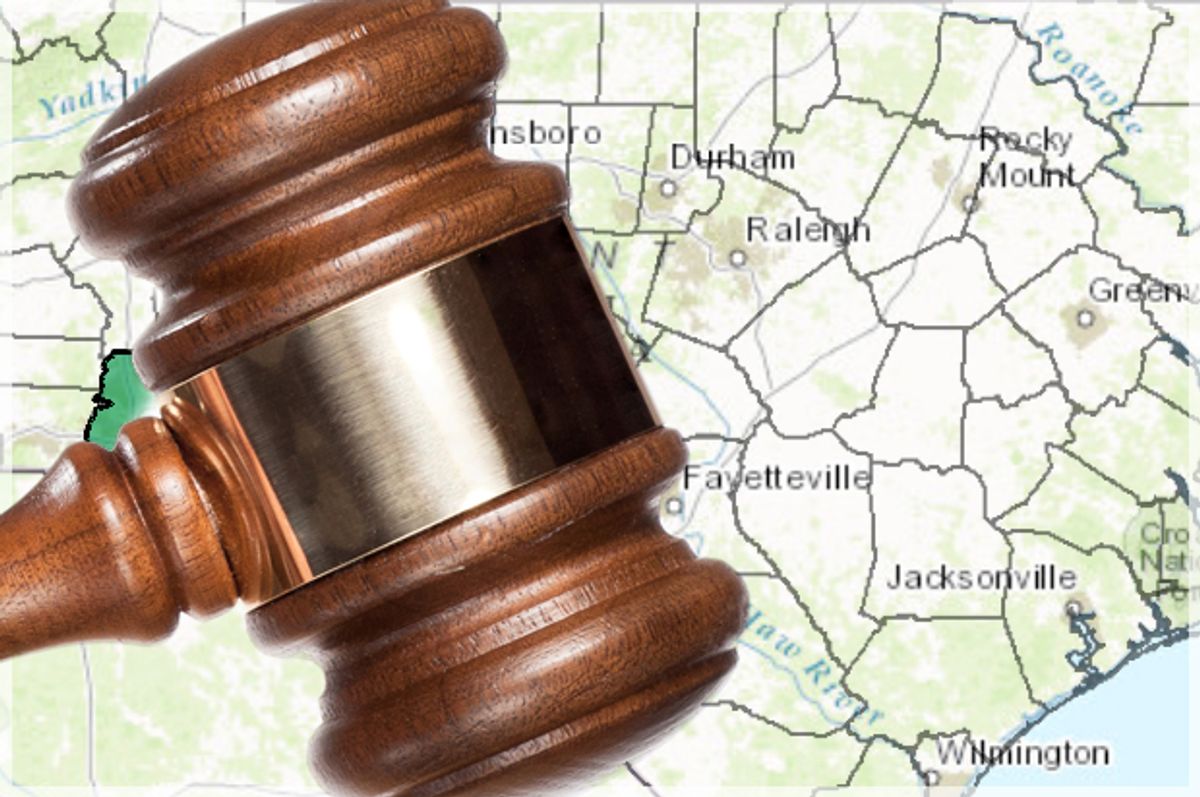The Republican Party suffered a major setback in North Carolina after a panel of federal judges ruled its heavily gerrymandered congressional districts to be unconstitutional.
Judge James Wynn Jr. denounced the political map in that state as "motivated by invidious partisan intent," according to The New York Times. As a result of this ruling, North Carolina's legislature has been ordered to draw up new congressional districts by Jan. 24, establishing a judicial precedent that could reverberate to other partisan gerrymandering cases throughout the country. It was the first time that a federal court has blocked a congressional map because it deemed the partisan nature of its gerrymandering to be unconstitutional.
Because Republicans have already vowed to appeal the North Carolina ruling, this case could become the third one to appear before the Supreme Court that deals with partisan gerrymandering issues. The other two cases come from Wisconsin and Maryland: In Wisconsin, Republicans in the state legislature were accused of gerrymandering in such a way that it has become impossible for Democrats to achieve a majority, while in Maryland, Democratic legislators were accused of gerrymandering congressional districts so that a Republican-held seat would wind up being taken over by a Democrat.
Dallas Woodhouse, the executive director of the North Carolina Republican Party, criticized Wynn's decision as "a personal, partisan war on North Carolina Republicans," but the three judges on the panel were unanimous about the unconstitutionality of the North Carolina scheme. They included Wynn, who had been appointed by President Barack Obama; Earl Britt, who had been appointed by President Jimmy Carter; and William L. Osteen Jr., who had been appointed by President George W. Bush, according to the News & Observer.
North Carolina has suffered other legal setbacks in its gerrymandering cases. Last year, the Supreme Court ruled that two congressional districts had been drawn up with the goal of packing racial minorities into certain areas as a means of diluting their voting power. This was regarded as unconstitutional.

Shares